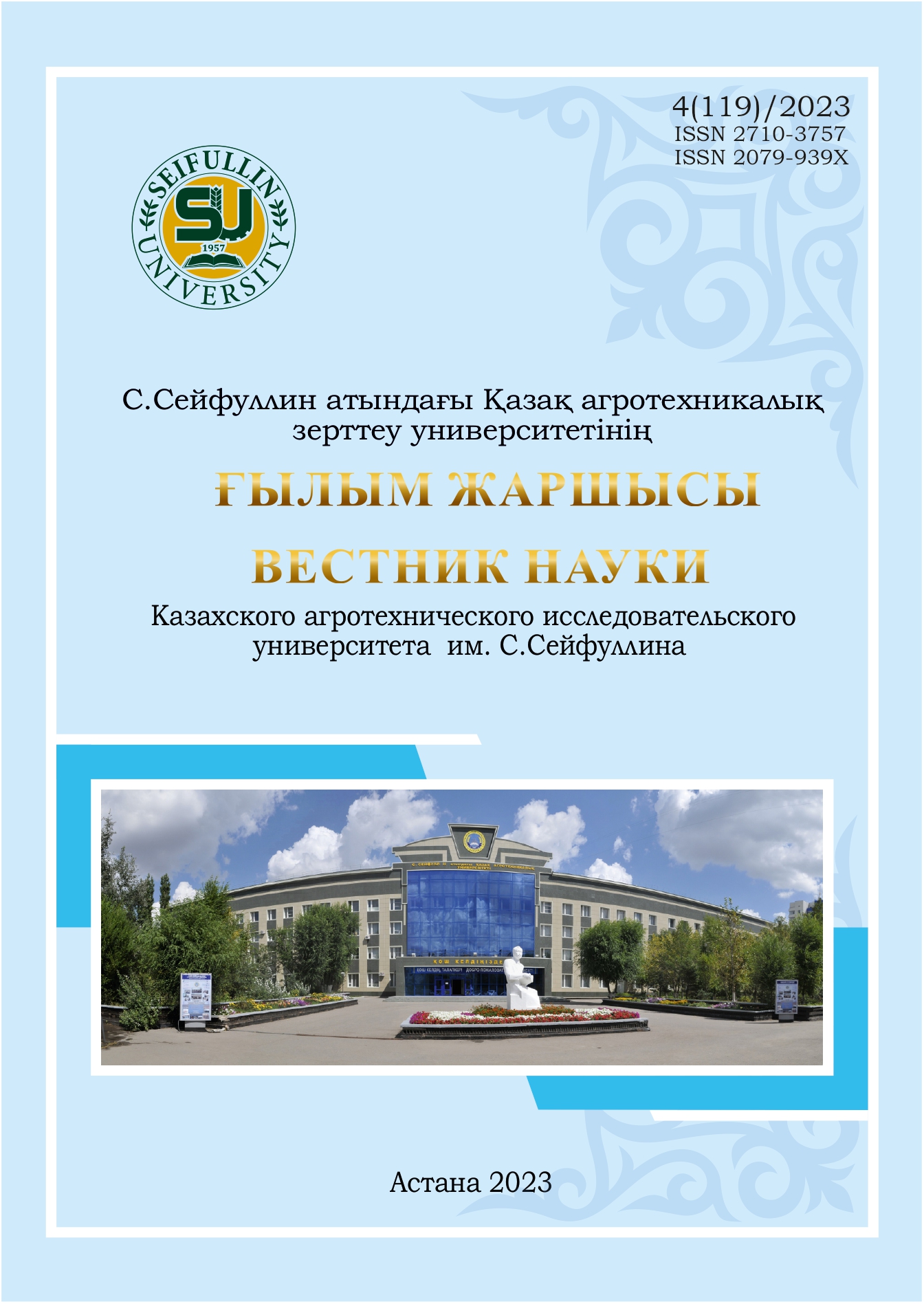THE INFLUENCE OF AGROTECHNICAL FACTORS ON THE YIELD OF SPRING SOFT WHEAT VARIETIES IN THE CONDITIONS OF CENTRAL KAZAKHSTAN
DOI:
https://doi.org/10.51452/kazatu.2023.4(119).1582Keywords:
Spring soft wheat; yield; genotype; fertilizer application; sowing period; sowing amount.Abstract
The yield level of spring soft wheat in the chestnut soils of Central Kazakhstan depends on the influence of many factors. Research has proven that the influence of the variety on the yield of spring soft wheat is high (29.06%) among other studied factors. Analysis of variance of the obtained data on varieties of spring soft wheat proves the reliable influence of factors and interactions of factors at all confidence levels and the maximum effect on yield reaches 78.71%. Research has proven that the optimal selection of mineral nutrition, sowing timing parameters, and sowing rates of spring soft wheat seeds contributes to obtaining maximum yield (30.44 c/ha) regardless of climatic deviations during the years of research. In the conditions of Central Kazakhstan, in dry years, intensive varieties of spring wheat form the maximum grain yield when sowing on May 20, and in wet years - on May 15 with a sowing rate of 3.5 million viable seeds/ha and with improved nutrition regime (Ammophos -179 kg/ha and Ammonium sulfate - 80 kg/ha).

